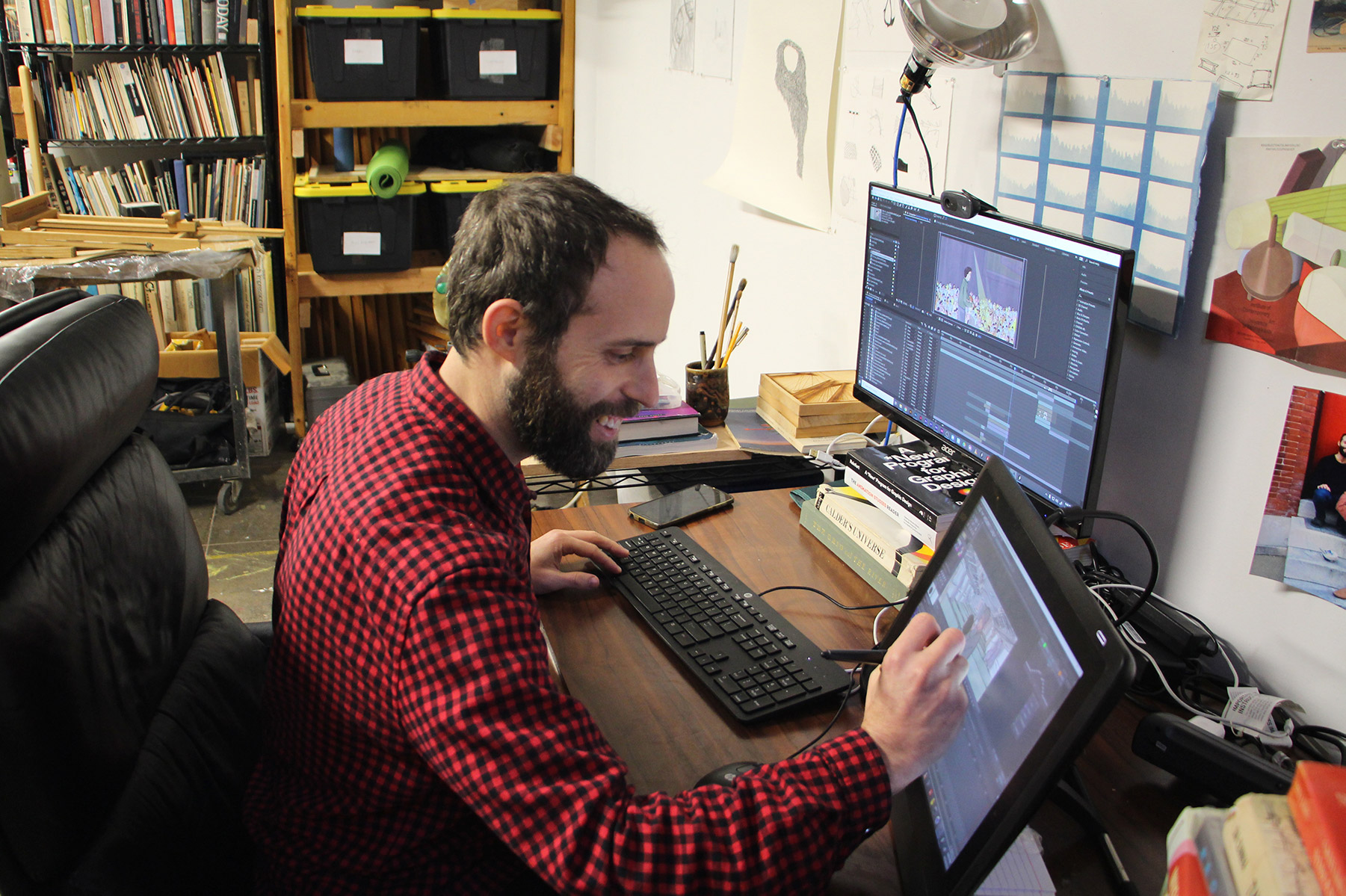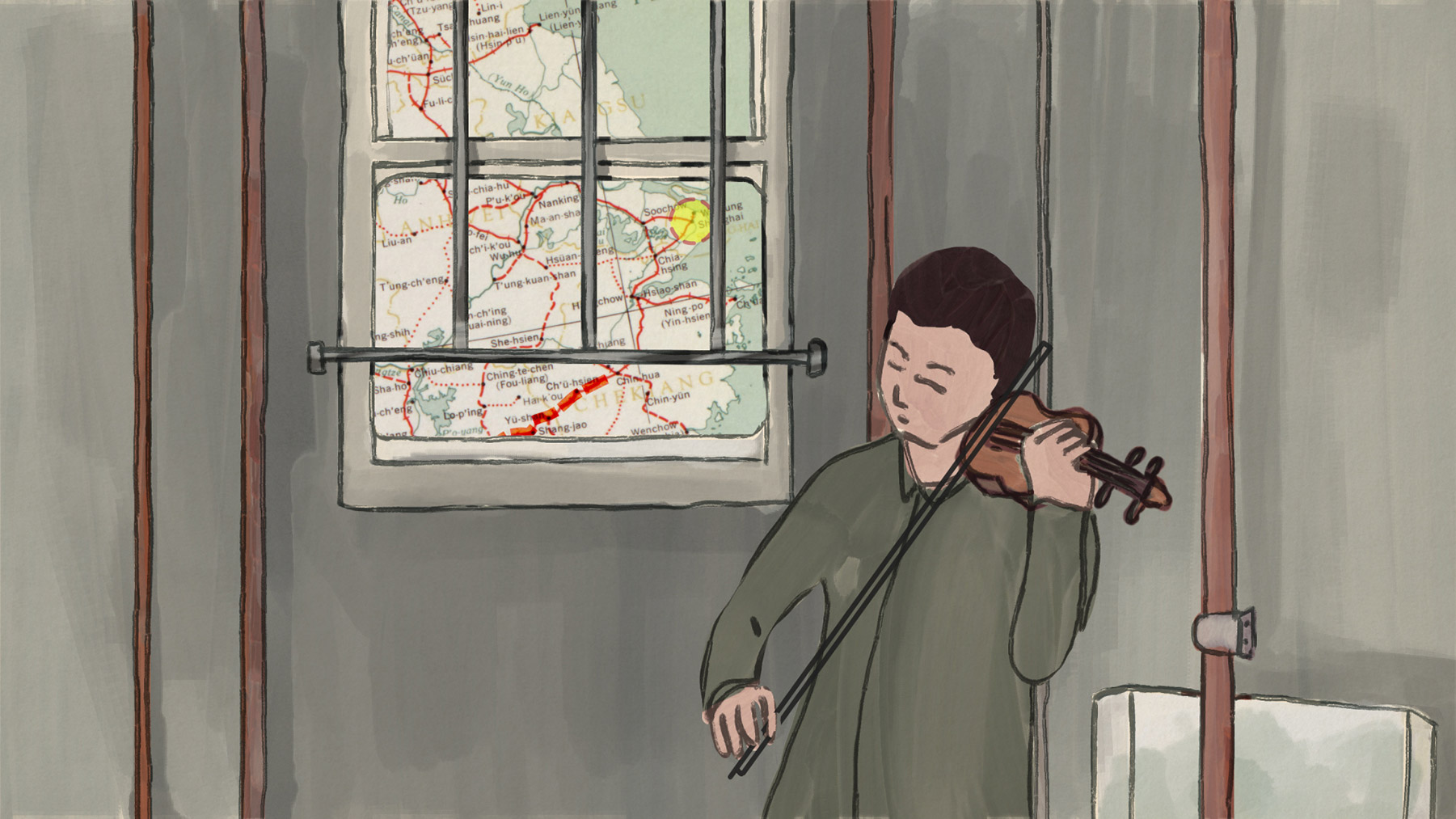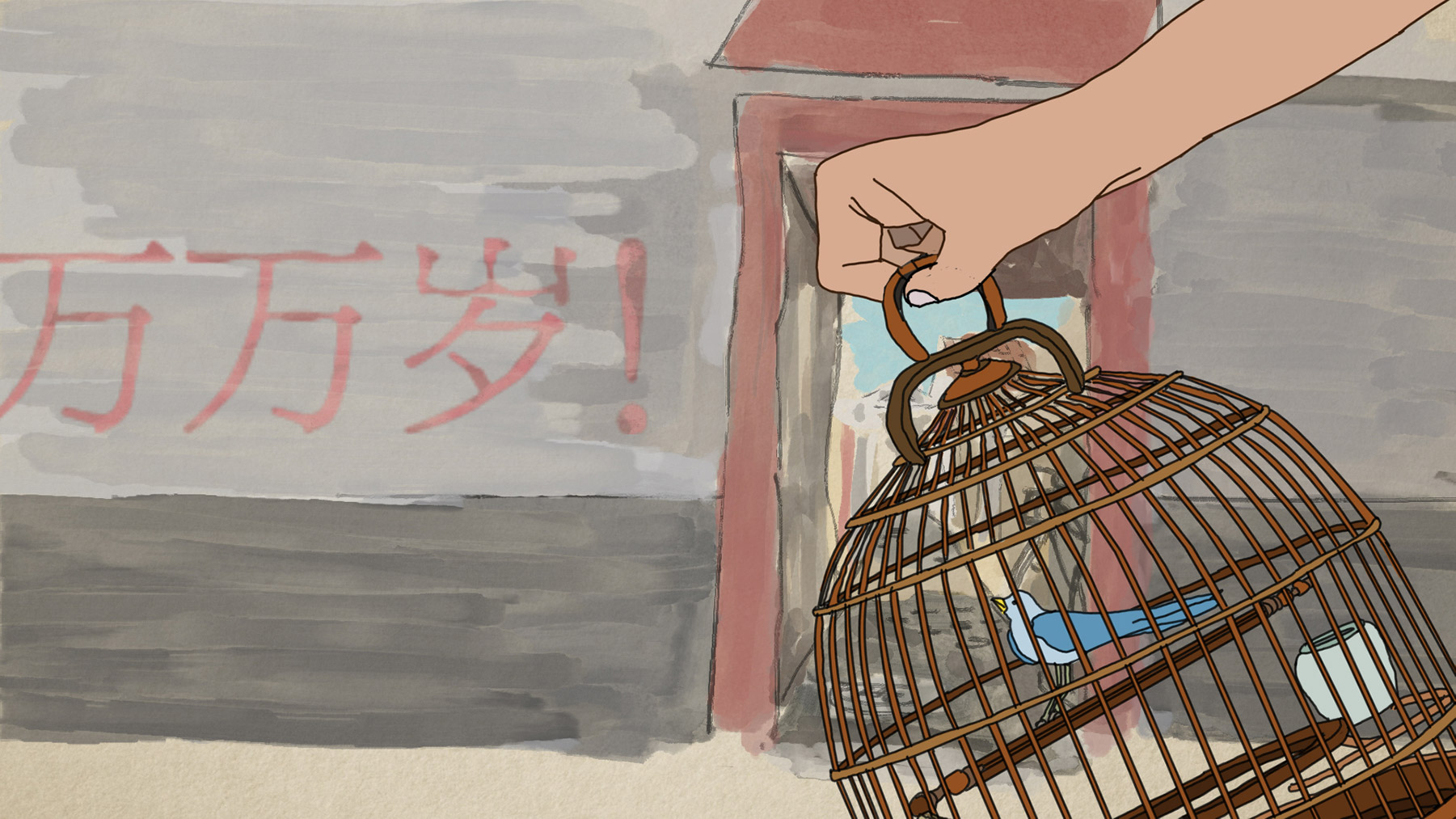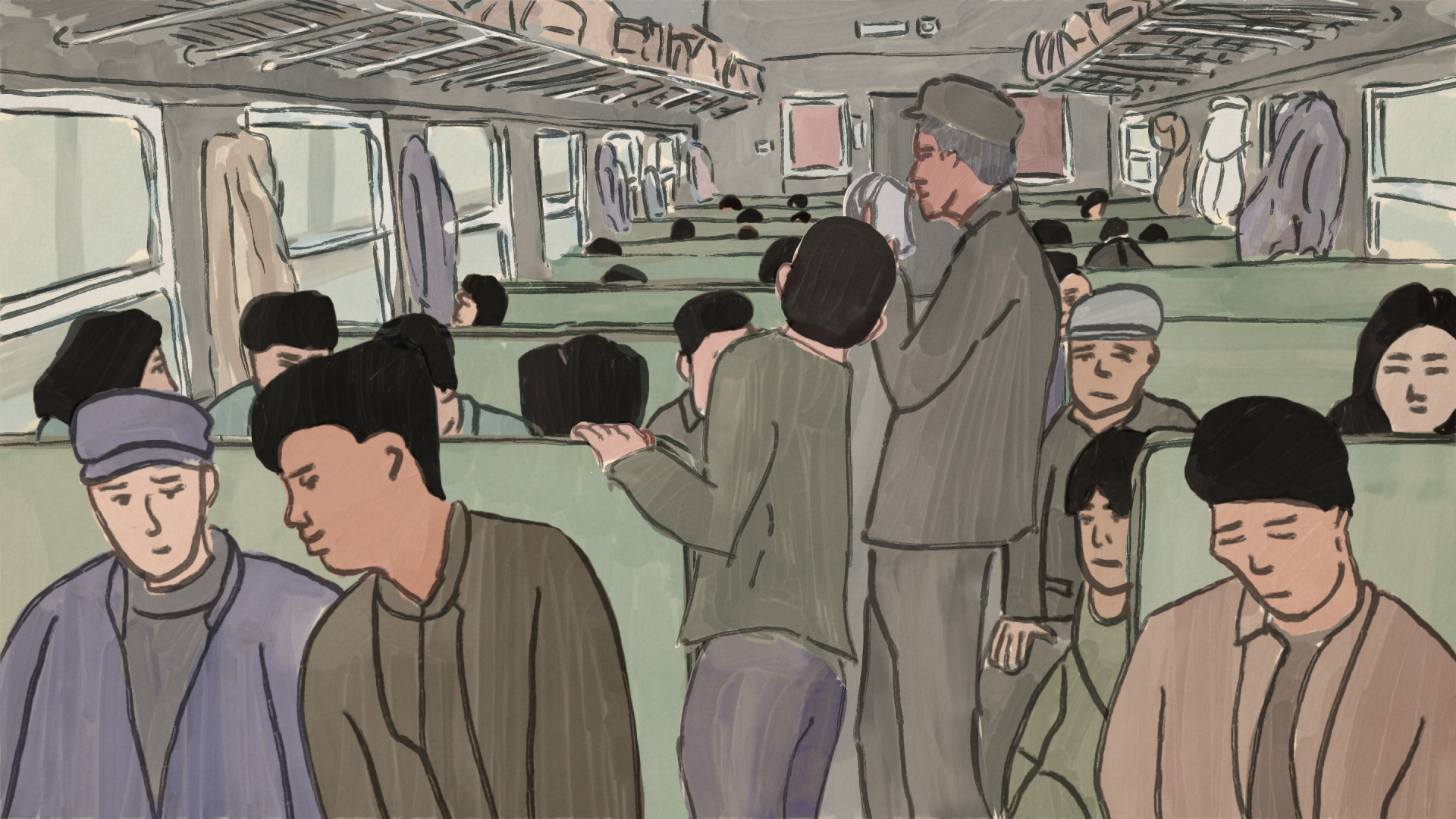Jacob Rivkin ’07 came to Vassar with a passion for art and soon developed a love of Chinese culture. He majored in studio art and minored in Chinese language, and he combined his two passions during two trips to China, working with Chinese sculptors in a Vassar-sponsored summer program and studying Chinese landscape art as a Fulbright Scholar a year after he graduated.

More than a decade later, Rivkin, who teaches art at the University of Pennsylvania and Rutgers University, has parlayed his talent as an animator and his knowledge of Chinese culture by playing a key role in the making of a documentary film titled Beethoven and Beijing. The film debuted on PBS April 16, 2021 and may be viewed here on Great Performances.
The documentary chronicles the groundbreaking tour of China by the Philadelphia Orchestra in 1973, less than a year after President Richard Nixon and Chinese Premier Zhou Enlai launched the normalization of relations between the two countries. The orchestra’s triumphant performances are credited with the resurgence of classical music in a country that had banned most forms of Western music and art during the Cultural Revolution.
The film’s co-directors, Jennifer Lin and Sharon Mullally, had tracked down some footage of the orchestra’s performances but were looking for ways to illustrate the stories told by noted Chinese musicians whose careers were influenced by the re-introduction of Western music to the country. “There were stories we knew we wanted to include in the film,” Mullally said, “but we only had the characters’ sharing of their memories—no visual material to support the anecdotes.”
Mullally said she’d seen animation used effectively in such situations, “so I Googled Chinese landscape painting, animation, and Philadelphia (where Mullally’s film company is based)—and there was Jacob.”
Rivkin was commissioned to create animations to accompany conversations by four noted Chinese musicians—pianist Peng-Peng Gong, conductors Yannick Nézet-Séguin and Jindong Cai, and Academy Award-winning conductor and composer Tan Dun (Crouching Tiger, Hidden Dragon).

In the film, Tan Dun tells the story of hearing a performance of the Philadelphia Orchestra on a loudspeaker in a rice paddy at the commune where he was living in 1973. Rivkin animated an anecdote Tan Dun related about traveling six hours by train—hiding in a bathroom because he didn’t have the money for the trip—from his home to Shanghai for an audition.
Rivkin said he was honored to have the opportunity to play a role in the making of the documentary. “It’s a story about the power of international exchanges and the power of art and culture and music,” he said.
Mullally and Lin both said Rivkin’s talent had been a key to the success of the film. “Jacob brought cultural knowledge from the time he spent in China and a lyrical approach that captured the feeling of these stories in unexpected ways,” Mullally said. “His work is a beautiful addition to the documentary.”

Lin, who also served as a co-producer of the film, said Rivkin had enabled her and Mullally to convey memories from the Chinese musicians that otherwise would not have been possible. “His animation became essential,” she said. “As someone who lived in China for a year as a Fulbright Scholar, he visually understood China. When it came to creating the animation of Jindong Cai recalling what it was like to secretly listen to Beethoven during the Cultural Revolution, I didn’t have to explain to Jacob what a courtyard home looked like. He knew.”
Rivkin said his work on the film led directly to a new project: creating animation for a documentary about the bankruptcy of Detroit titled Gradually but Suddenly. He said he never could have predicted that his college experiences would lead him down a new path in his career. “I couldn’t have made this project,” he said, “without my time at Vassar.”
